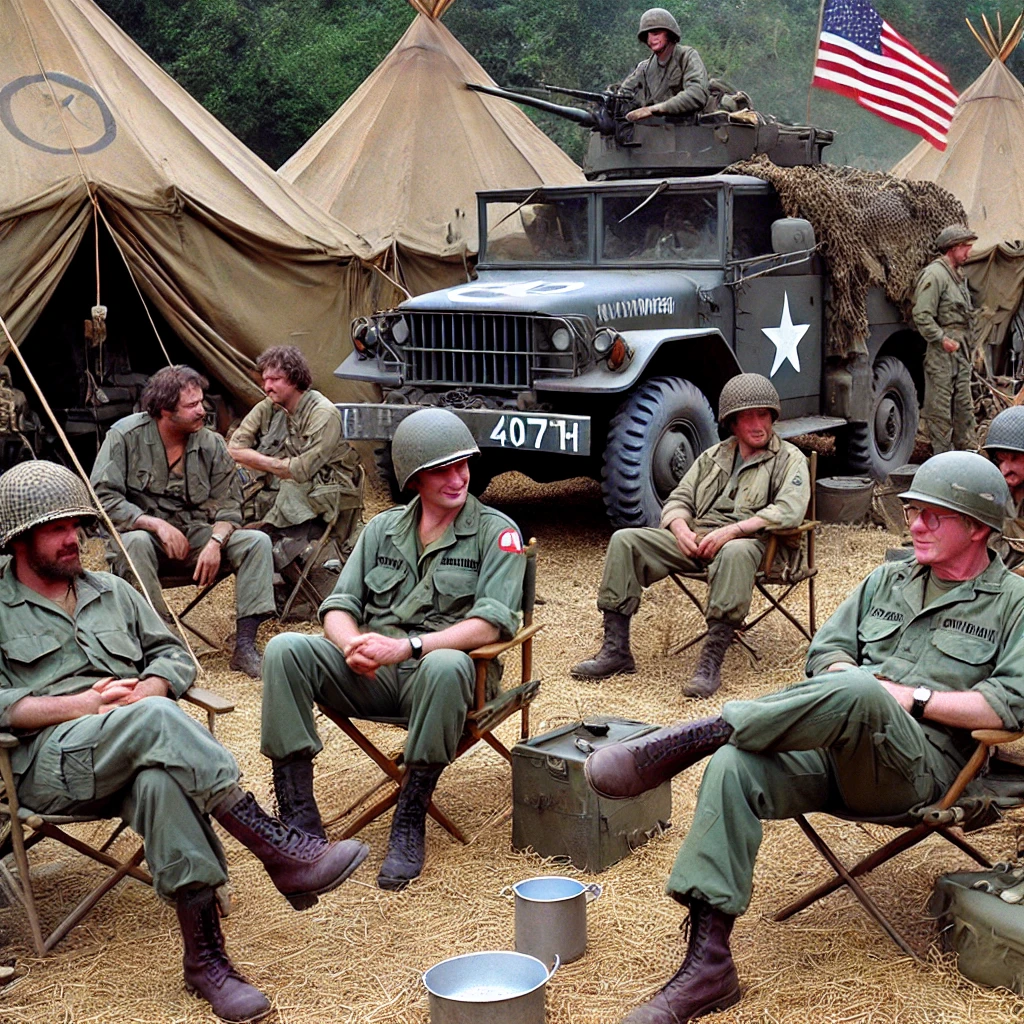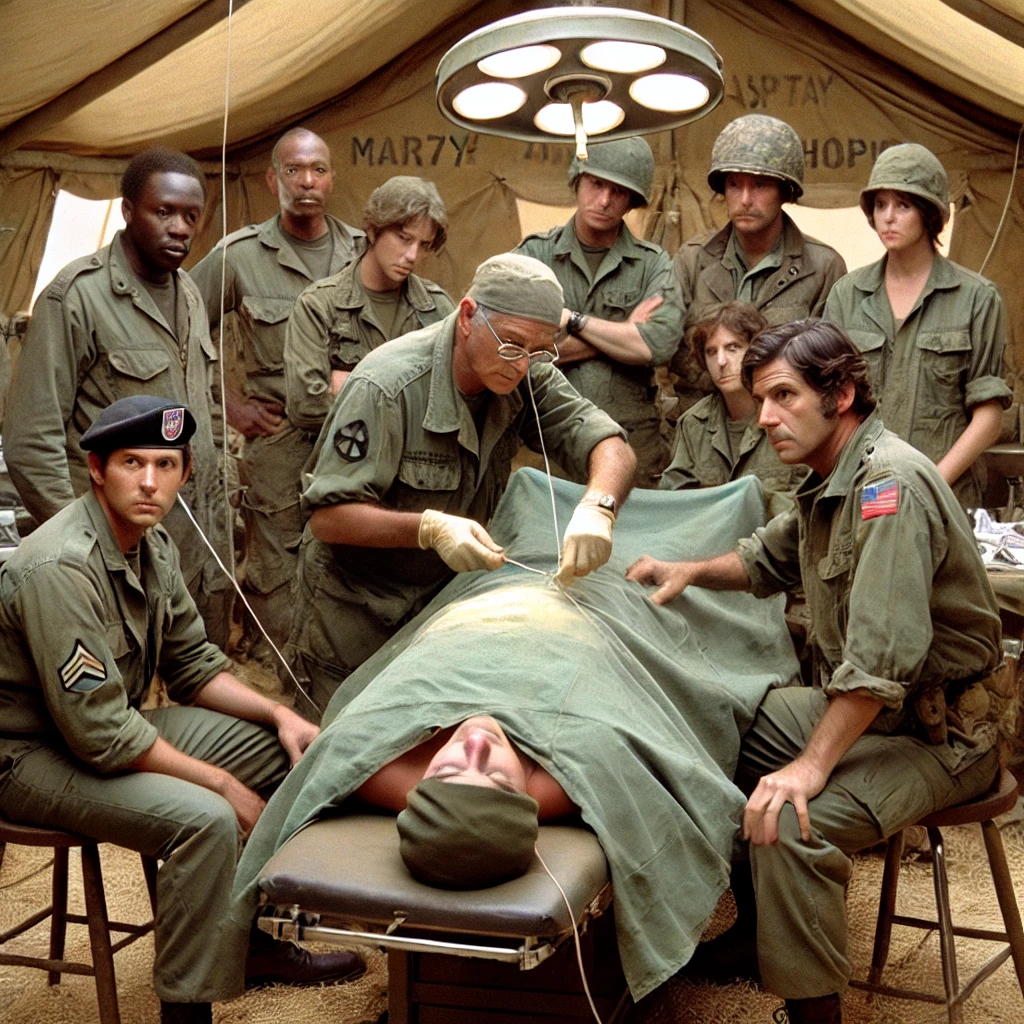On September 17, 1972, the American television series M*A*S*H made its debut on CBS, marking the beginning of a show that would become one of the most beloved and influential series in TV history. Based on the 1970 film directed by Robert Altman, M*A*S*H quickly garnered acclaim for its unique blend of comedy and drama, capturing the hearts of both critics and audiences. The show’s innovative approach to storytelling, its memorable characters, and its commentary on the human condition during wartime contributed to its lasting impact on American television.
The Genesis of MAS*H
M*A*S*H was based on the 1970 film of the same name, which was adapted from Richard Hooker’s novel. The film, directed by Robert Altman, was a satirical take on the Korean War, highlighting the absurdities and challenges faced by medical personnel stationed in a Mobile Army Surgical Hospital (M*A*S*H). The success of the film set the stage for the television adaptation, which aimed to capture the same satirical edge while exploring deeper themes of war and human resilience.
The television series was created by Larry Gelbart, who brought a fresh perspective to the story by incorporating elements of both comedy and drama. Unlike the film, which focused primarily on satire, the series delved into the emotional and psychological impacts of war on the characters. This nuanced approach helped differentiate the show from other wartime dramas and comedies of the era.

Premiere and Early Reception
M*A*S*H premiered on September 17, 1972, and immediately set itself apart with its distinctive style and tone. The series was set in a 4077th MASH unit during the Korean War, and its ensemble cast included Alan Alda, Wayne Rogers, Loretta Swit, and McLean Stevenson. The show’s pilot episode introduced viewers to the central characters and the chaotic environment of the MASH unit, blending humor with poignant moments of reflection.
The initial reception of M*A*S*H was mixed, with some critics unsure about the show’s balance between comedy and drama. However, as the series progressed, it began to gain traction with audiences and critics alike. The show’s ability to address serious topics such as the horrors of war, personal sacrifice, and camaraderie, while maintaining a comedic tone, proved to be a winning formula.
Character Development and Storytelling
One of the key factors behind M*A*S*H‘s success was its well-developed characters. The series featured a diverse cast of characters, each with their own distinct personalities and backgrounds. Alan Alda’s portrayal of Captain Benjamin Franklin “Hawkeye” Pierce, a charismatic and often irreverent surgeon, became iconic. His interactions with other characters, including the straight-laced Major Margaret “Hot Lips” Houlihan (Loretta Swit) and the wisecracking Corporal Maxwell Q. Klinger (Jamie Farr), added depth and complexity to the show.
The series was also known for its innovative storytelling techniques. M*A*S*H often employed flashbacks, dream sequences, and character-driven subplots to explore the personal lives and struggles of its characters. This approach allowed the show to address important social issues and humanize its characters, making them relatable to viewers.
Critical Acclaim and Awards
As M*A*S*H continued its run, it received widespread acclaim from critics and audiences. The show’s ability to seamlessly blend comedy with drama was praised for its originality and depth. M*A*S*H won numerous awards, including Emmys and Golden Globes, and became a critical darling for its writing, acting, and overall impact.
The series finale, aired on February 28, 1983, was one of the most-watched television events of all time, drawing a record-breaking audience. The finale, titled “Goodbye, Farewell and Amen,” was a poignant and emotional conclusion to the series, reflecting on the themes of war, friendship, and the passage of time.

Impact on Television and Popular Culture
M*A*S*H had a profound impact on American television and popular culture. The show’s success demonstrated that a television series could effectively blend comedy with serious themes, paving the way for future programs to explore complex and nuanced storytelling. The series also influenced the portrayal of war on television, shifting the focus from traditional war hero narratives to more realistic and humanistic depictions.
The show’s characters and catchphrases entered the cultural lexicon, and its influence extended beyond television into film, literature, and other media. M*A*S*H remains a touchstone for discussions about the portrayal of war and the human condition in popular culture.
Legacy and Enduring Popularity
The legacy of M*A*S*H endures through its continued popularity in syndication and its influence on subsequent television series. The show’s ability to address timeless themes such as the absurdity of war, the importance of friendship, and the resilience of the human spirit ensures its place in the pantheon of great television.
The impact of M*A*S*H can be seen in the numerous awards it received and the ongoing admiration of its fans. The show’s innovative approach to storytelling and its memorable characters have left an indelible mark on television history.
Influence on Future Television Shows
M*A*S*H set a precedent for how television series could tackle serious subjects with humor and sensitivity. The show’s success encouraged other creators to explore complex themes and develop multidimensional characters. This influence can be seen in later television dramas and comedies that blend different genres and address societal issues.
The show’s format and storytelling techniques have inspired numerous other television programs, contributing to the evolution of television storytelling and paving the way for more nuanced and multifaceted portrayals of human experiences.
Enduring Fan Base and Cultural Relevance
The enduring popularity of M*A*S*H is reflected in its continued fan base and cultural relevance. The series remains a beloved classic, with fans appreciating its blend of humor, drama, and social commentary. The show’s ability to resonate with audiences across generations highlights its timeless appeal and lasting impact.
M*A*S*H continues to be celebrated for its contributions to television and its role in shaping the landscape of popular culture. Its legacy endures through the ongoing appreciation of its storytelling, characters, and themes.

Lasting Impact
The impact of M*A*S*H on television and popular culture is significant and lasting. The show’s innovative approach to blending comedy and drama, its memorable characters, and its exploration of complex themes have solidified its place as one of the greatest television series of all time.
M*A*S*H‘s legacy continues to influence television storytelling and remains a beloved classic, cherished by fans and admired by critics. The show’s contributions to the medium and its enduring popularity ensure that its impact will be felt for generations to come.
